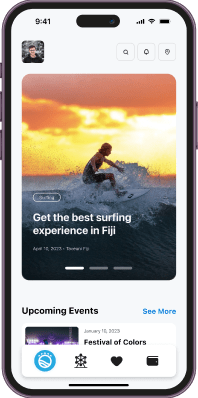The most commonly used words in Fiji


The three official languages of Fiji are English, Fijian and Fiji Hindi. English is widely used by all in schools, workplaces and for official use. As a traveler in Fiji, you will be able to navigate the different places with ease as there will always be someone there to guide you if you are lost. Communicating with the locals in their language is always a bonus and quickest way of making new friends. Well, at least in Fiji, speaking some basic Fijian phrases will surely put a smile on the locals’ faces.
It is interesting to note that there are slight differences in how you pronounce words in Fijian as they have different vowel sounds from English pronunciation.
The “d” in Fijian words has an unwritten “n” in front of them. For example: Nadi, when said, becomes “Nandi”; “g” has an unwritten “n” in front of the word. Sega is pronounced as “senga” and the very common one “c” in Fijian words has the “th” sound. So, Mamanuca is pronounced as “Mamanutha”.
Below are some of the phrases that you can use in Fiji to communicate with the locals.

The most common word you will hear as you land in Fiji is “Bula“. It is used to greet people or to say hello. Bula in Fijian culture means wishing someone life. So the next time you’re greeted with bula, simply return with a big bula smile! Note that you may also hear Ni sa bula or Ni sa bula vinaka which is a more formal welcome greeting.
The second most common Fijian word you will hear in Fiji is vinaka. This means thank you. If you experience a great Fijian hospitality, be sure to say vinaka to your host, and if you get a vinaka back, just know that it means “You’re welcome”. Do note that sometimes it is shortened to sound like Naka. Vinaka valelevu is said when you’re overly grateful for the services you have received. This means thank you very much.
Yadra is used by Fijians to greet someone in the morning. So if you’re up early in the morning, make sure to greet locals or those who serve you with a pleasant Yadra.
Moce simply means goodbye. Note that “c” is pronounced as “th”. So the correct way to pronounce goodbye in Fijian is “mothay”. Alternatively, sota tale means “see you later”.
It is always polite to ask for help in an orderly manner, so remember to use kerekere when asking for help from the locals. This means, please.

Lako mai ke or just lako mai means come here.
The most loved word in Fiji is arguably, mai kana. You’ll get to hear this every time you visit a village. Mai kana means come and eat. The villagers will invite you to have meals with them, which proves the great Fijian hospitality.
Io pronounced as “ee-oh” means yes, and sega pronounced as “senga” means no.
Vale lailai means toilet or washroom in Fiji. It’s an important word, especially when you’re in a village and badly need to use the washroom.
Sitoa simply means shop from where you can buy snacks, groceries and drinks.
You might want to know this because gunu means to drink.
These are some of the essential everyday used Fijian words that you will definitely hear a lot when in Fiji. You can use them in your conversation to blend in with the locals.
